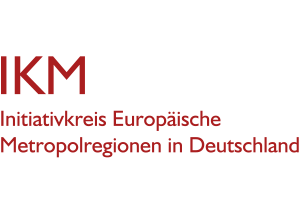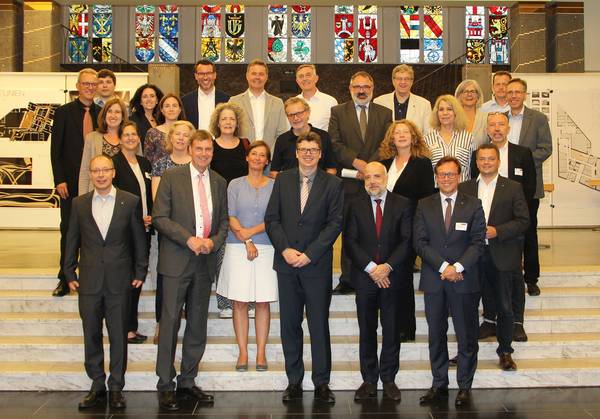Conference on “Equal Living Conditions” in Berlin
German metropolitan regions present solutions in Berlin
At a joint conference on 4 June 2019 in Berlin, the Initiative Group of European Metropolitan Regions in Germany and the Federal Institute for Research on Building, Urban Affairs and Spatial Development presented perspectives on promoting equal living conditions in Germany. Projects from the metropolitan regions were presented on topics such as social participation, opportunities in a digital world, mobility in rural areas and networking in the health sector.
In the German metropolitan regions, cooperation between urban and rural areas is a reality. They involve a wide variety of partners in rural and urban areas on an equal footing. Regionally on site and also jointly, they show responsibility for the goal of equal living conditions in rural and urban areas. They work with numerous partners to find solutions to a wide range of challenges, be it in the area of mobility, settlement or commercial space development, regional marketing or local recreation. Metropolitan regions shape the partnership between rural and urban areas in projects and thus strengthen the competitiveness of their region and of Germany as a whole.
During the day-long conference, around 130 experts from politics, planning and science presented and discussed possible solutions. In his opening speech, Dr. Markus Eltges, Director of the Federal Institute for Research on Building, Urban Affairs and Spatial Development (BBSR), said: “Equal living conditions concern everyone. Promoting them is a task for society as a whole. The regions in particular must recognise their potential, leverage it and, where necessary, cooperate regionally.”
State Secretary Dr. Markus Kerber, Federal Ministry of the Interior, for Building and Community, pointed out: “The aim of our homeland policy is to improve the living conditions for every individual and the cohesion of our society as a whole. This includes equalising the living conditions in our country. It is a matter of helping strongly growing conurbations and metropolitan areas to cope with their challenges and of giving structurally weak regions opportunities for development. Urban-rural cooperation is an important instrument for achieving this goal. As well-established networks, metropolitan regions are important actors and multipliers for the creation of equal living conditions in Germany’s regions.”
Jakob Richter from Hamburg, spokesman of the Initiative Group of European Metropolitan Regions in Germany (IKM) went into detail about the positioning of the German metropolitan regions on the topic and presented numerous contributions of the German metropolitan regions to the creation of equal living conditions. These include, among others:
- Joint regional development planning
- Digitalisation as an opportunity for social participation
- Mobility concepts and public transport funding in urban and rural areas
- Opportunities for electromobility for climate protection and economic development in rural and urban areas
- Shaping structural change
- Growth and building culture with quality and calculation of demand for settlement areas
- Digitalisation skills of socially disadvantaged young people
- Networking of actors in the health sector
- Intelligent marketplaces to secure local supply in rural areas

